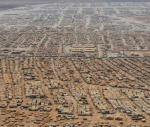You are here
Smoking Economics
Oct 15,2018 - Last updated at Oct 15,2018
The Nobel Prize for Economics was won this year by two American economists: The first is William Nordhaus of Yale University “for integrating climate change into long-run macroeconomic analysis”. The Second is Paul Romer of New York University for “integrating technological innovations into a long-run macroeconomic model”.
The main concern of both was to link the notion of sustained and/or sustainable growth with the ability to contain environmental degradation. Since the two are concerned with the long-range analysis of macroeconomics impact of environment degradation and restructuring, the issue of smoking becomes relevant.
Smoking is a main source of air pollution and soil destruction. Planting of tobacco causes a great damage and induces the cancerous growth of toxic parasitic plants. As a result, many countries are adopting measures to limit the farming of tobacco and pushing it to marginal lands.
In response, tobacco companies are engaged in investing in tobacco farming especially in poor countries where restrictions are either absent or lax. Moreover, they store huge amounts of tobacco for years to come. They use hundreds of chemicals, some of them are addiction-forming, in order to maintain their stocks.
Such chemicals have been found to be a major source of cancer especially in lips, tongues, throats and lungs. There is damning evidence that smoking is a major cause of heart diseases as well.
The number of people who die annually in the world as result of smoking-related illnesses is 7 million. The estimated market price bill of smoking in the world tops $1.3 trillion.
In the Arab world, we spend $110 billion to $120 billion on cigarettes alone excluding hubble bubbles, pipes and cigars. Saudi Arabia and Morocco enjoy the lowest percentage of smoking adults (15 years or older). Jordan tops the list with Lebanon.
In Egypt a pack of cigarettes costs 20 Egyptian pounds or $1.2. The governments’ annual tax levy on cigarettes is about $2.5 billion, second only to revenues from the Suez Canal.
In Jordan, tax levy on cigarettes tops $1.7 billion and is 18 per cent of domestic government revenues.
Most Arab countries ban smoking in public places. But public adherence is very low. The Jordanian Parliament and public institutions of all governmental branches allow smoking or are oblivious to violators. This is shameful and enforcement should be pursued with vehemence.
The cost of smoking is still not calculated. The welfare cost of death, sickness, early retirement, negative smoking and pollution are not subjected to scrutinous and well-structured studies. The cash-obsessed government officials always ignore the long-term effects for the short-term cash earnings.
As long as this type of thinking prevails, we will continue to kill about 380,000 smokers in the Arab World every year.











